


Owning an electric vehicle (EV) is a bit like upgrading to the latest smartphone—it’s smarter, more efficient, and built to make life easier. But the perks go way beyond convenience. With zero emissions, cheaper running costs, and no more worrying about fuel price hikes, you're not just driving the future—you’re doing your bit for the planet. And here’s the best part: with an EV novated lease, you can get behind the wheel of an EV without breaking the bank.
Keen to know how it works and why now’s the perfect time to make the switch? Stick around—we’ll break it all down for you!
When weighing up your car leasing options, it’s important to understand the key differences between an EV novated lease and traditional finance so you can choose what works best for you.
If you're keen to save on tax and lower your monthly costs, novated leasing could be a smart move—especially if you’re looking at an eco-friendly EV. It lets you bundle expenses like running costs into your pre-tax salary, making it a cost-effective and hassle-free way to drive electric.
On the flip side, if you prefer more flexibility and don’t want your employer involved, traditional finance gives you full control over your finance—but without the tax perks.
At the end of the day, it’s about what matters most to you—bigger savings and sustainability or more freedom in managing your car lease.
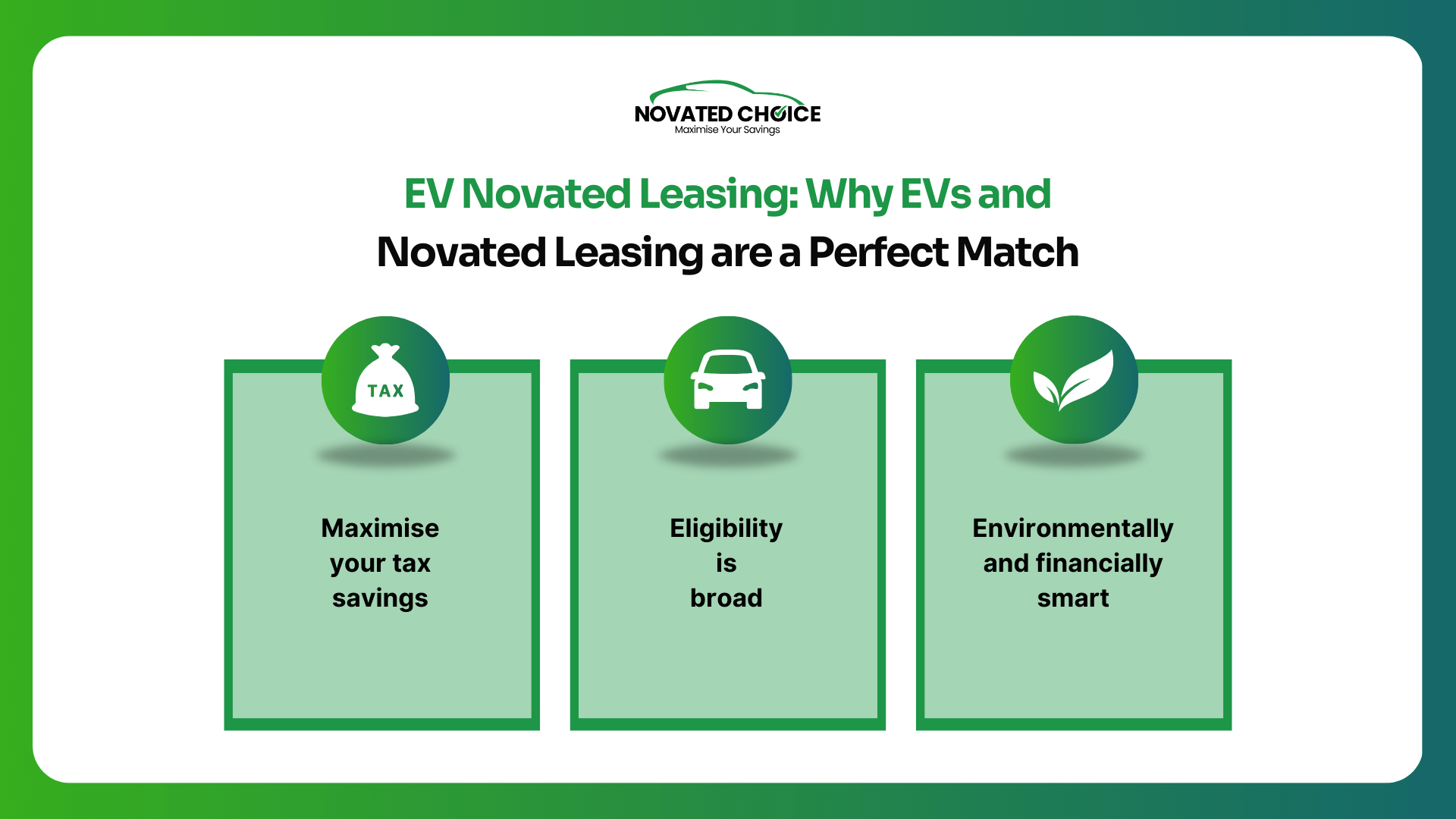
With more people looking to go green while also keeping an eye on their finances, this partnership makes perfect sense. Here’s why it is the ideal match for anyone thinking about making the switch to electric.
Choosing an electric vehicle (EV) under a novated lease offers significant tax savings. Lease payments and running electricity, such as fuel, insurance, registration, and maintenance, are deducted from your pre-tax income, effectively reducing your taxable income and lowering the amount of tax you pay. Additionally, GST is excluded from both the financed amount and the running costs, which can significantly reduce the overall cost of the vehicle, especially if it’s a new car.
While novated leases are subject to Fringe Benefits Tax (FBT), this is managed through a post-tax deduction, so you don’t have to worry about paying it at the end of the year. Furthermore, if your car is a fully electric vehicle and meets the required criteria, you are exempt from FBT, providing an additional financial benefit.
The EV discount applies to all new and recently pre-owned fully electric and plug-in hybrid vehicles, provided their value falls below the LCT threshold for fuel-efficient cars at the time of their first sale. This makes many popular EV models accessible under the scheme, ensuring you have a wide range of vehicles to choose from.
EVs not only reduce emissions and your carbon footprint but also help you take advantage of long-term savings on fuel and maintenance. When paired with a novated lease, they become an even smarter financial decision, offering significant upfront and ongoing cost advantages.
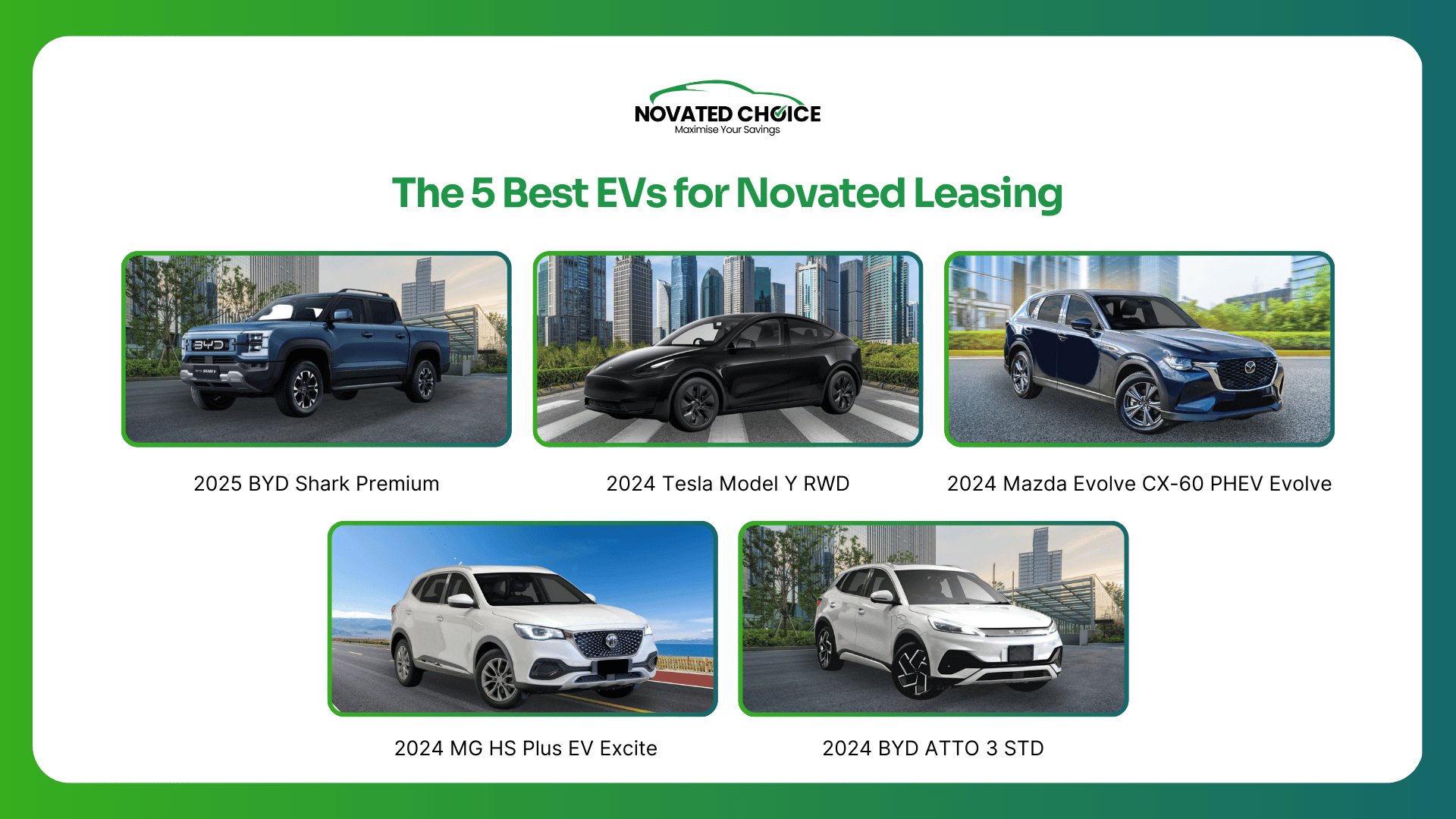
When choosing the best EVs for novated leasing, it is important to balance performance, range, and comfort. The following five electric vehicles are some of the top contenders on the market. Let’s dive into the details and explore which of these EVs might be your ideal match.
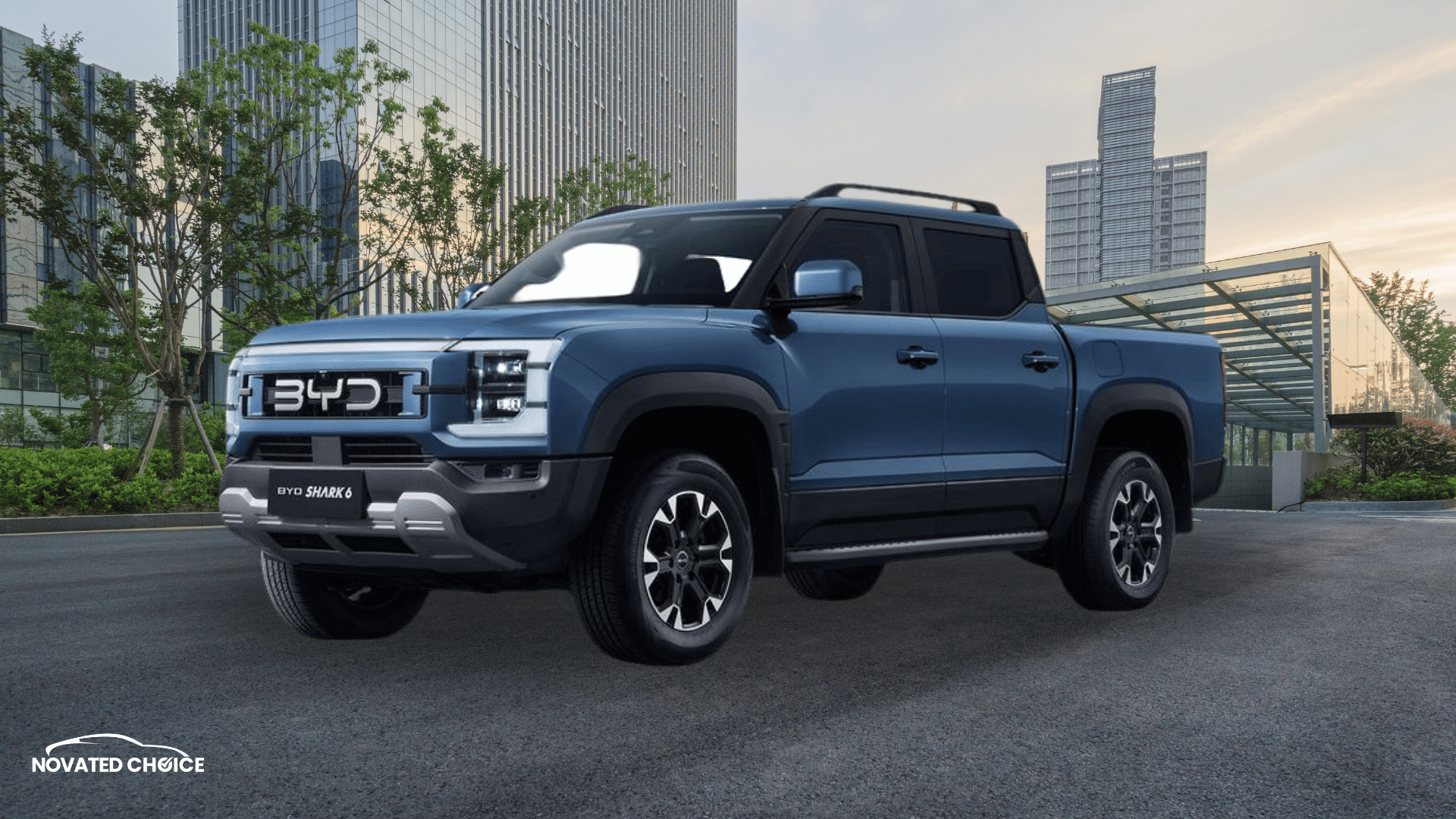
2025 BYD Shark Premium, our latest addition to the plug-in hybrid lineup offers a blend of impressive power and efficiency, with a 1.5L piston engine paired with an electric motor that delivers smooth, responsive driving.
Equipped with a 29.6 kWh battery, the BYD Shark Premium offers a solid electric range for everyday commutes, while the 4X4 on-demand system ensures you are ready to take on more challenging terrains when needed. With a 60-litre fuel tank, you also have the flexibility to cover longer distances when the electric charge runs low.
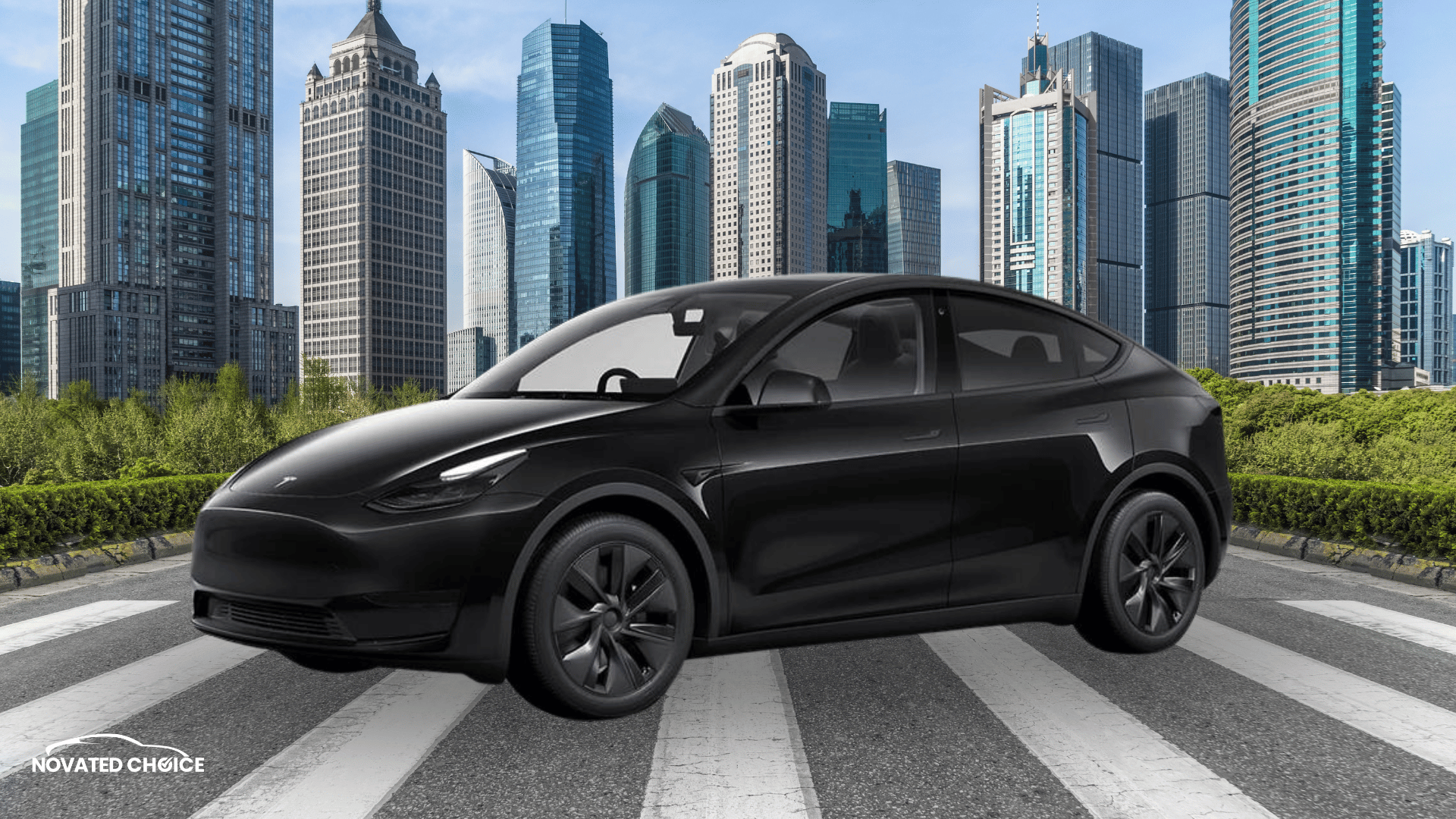
For those looking to embrace the future of driving with cutting-edge technology, the 2024 Tesla Model Y RWD is an unbeatable choice for novated leasing. With a long-range battery and rear-wheel drive, it combines effortless performance with fantastic efficiency.
The spacious interior comfortably accommodates families, while the minimalist design and tech features like autopilot and the large touchscreen are futuristic and fun to use. Plus, the 60 kWh battery capacity ensures you will get plenty of driving range on a single charge.
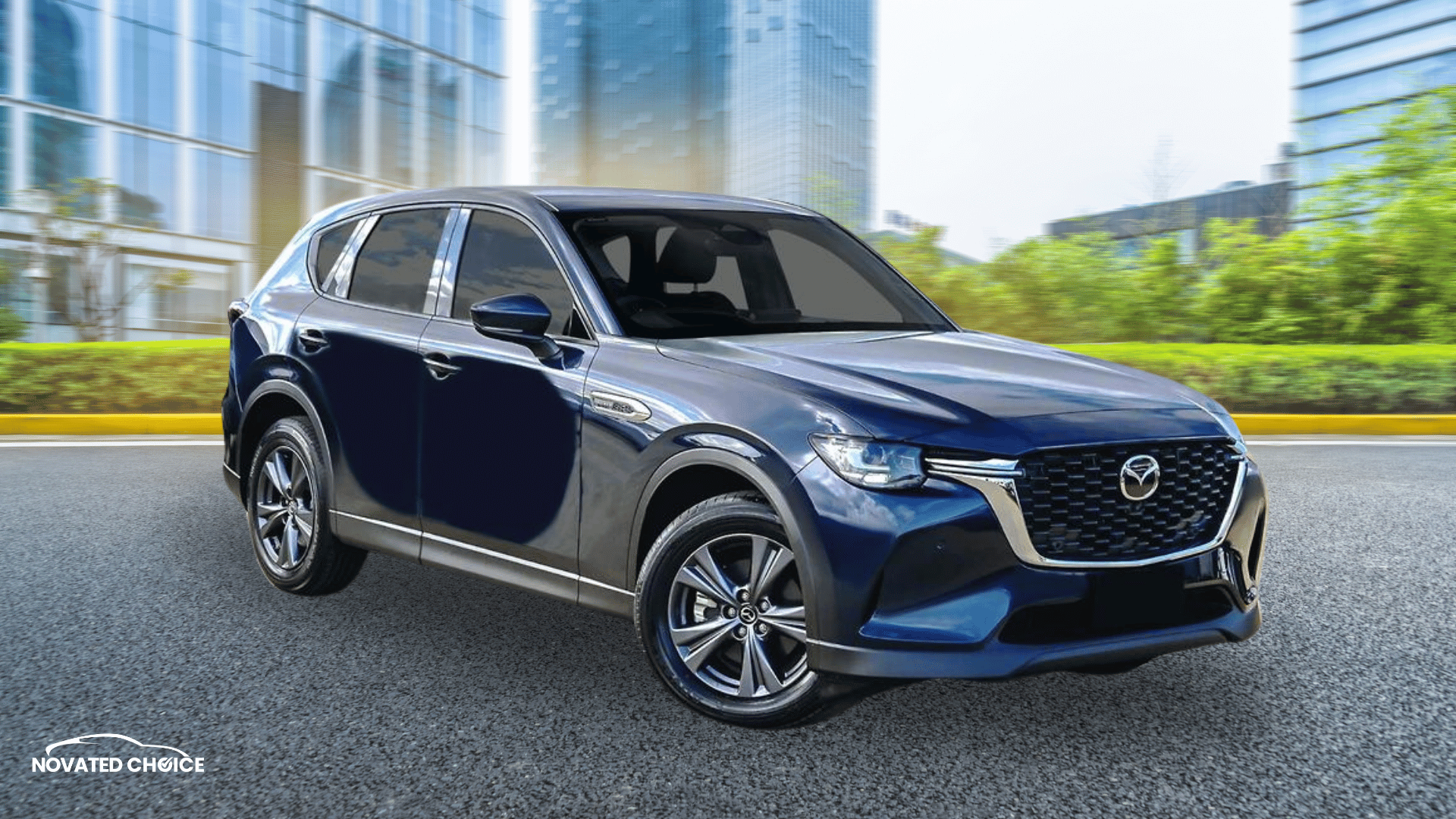
With a 2.5L piston engine paired with an electric motor, 2024 Mazda Evolve CX-60 PHEV Evolve delivers an impressive mix of power and efficiency, while the 4X4 on-demand system provides traction and stability in all conditions.
Its 17.8 kWh battery offers a solid range for short trips, while the 50-litre fuel tank ensures you're covered for longer drives. Inside, it is packed with quality features and a spacious, comfortable cabin.
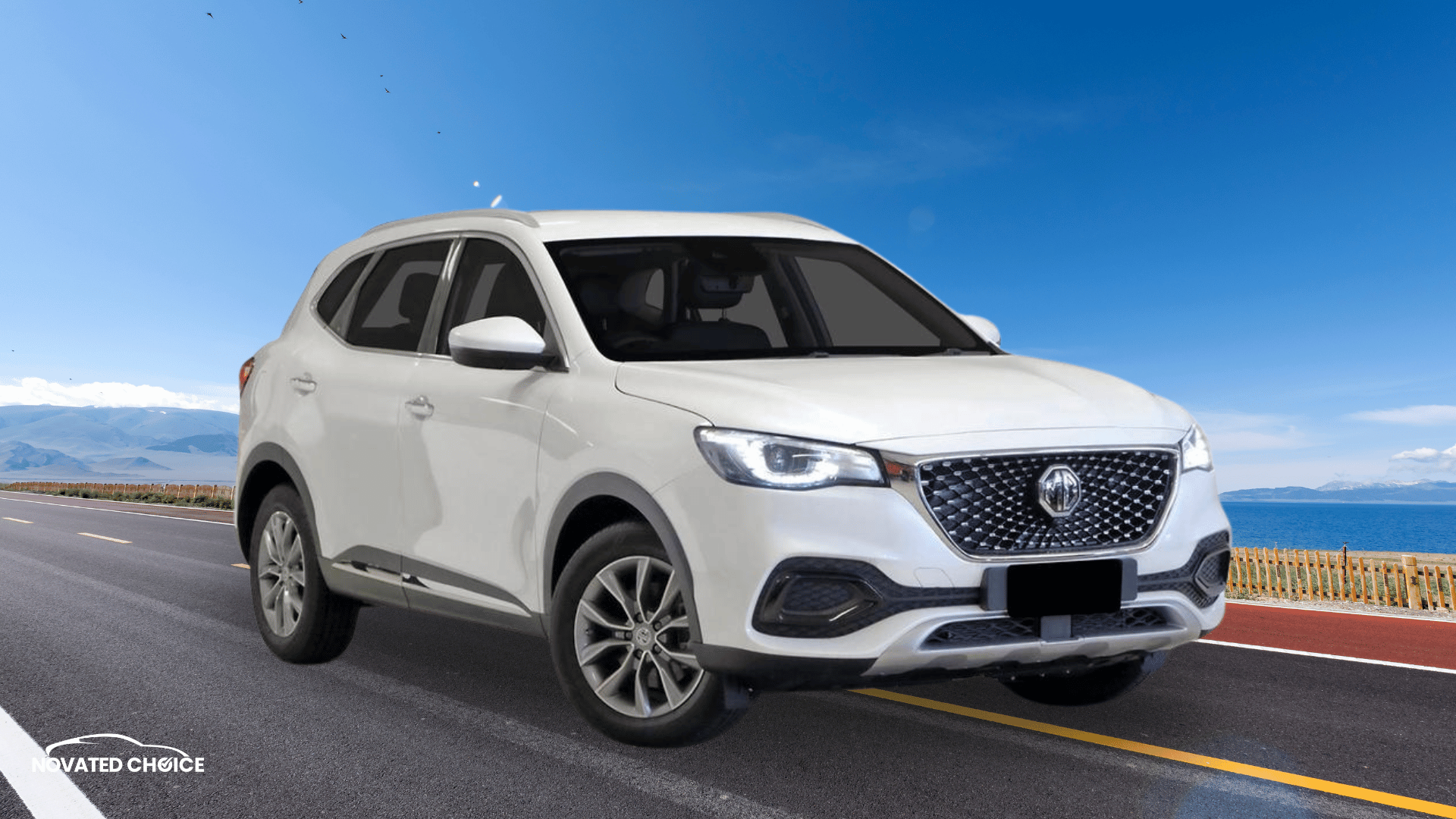
For an affordable entry into the electric vehicle market, the 2024 MG HS Plus EV Excite is a standout. Powered by a 1.5L petrol engine and an electric motor, this SUV delivers a smooth and responsive drive with an electric-only range that's perfect for short daily trips. With a battery capacity of 16.6 kWh and a fuel tank of 37 litres, you get a good mix of electric and petrol options.

If you are keen on a fully electric ride, the 2024 BYD ATTO 3 STD is an affordable and efficient EV that is perfect for a novated lease. With a large 49.9 kWh battery capacity, it offers a solid range for urban commuting and weekend trips.
Its front-wheel drive setup and modern design make it an easy drive around town, while the spacious 5-door interior ensures comfort for passengers. Packed with tech features, the BYD ATTO 3 offers great value for anyone looking to go all-electric at a more accessible price point.
When looking at your car leasing options, it’s worth understanding the key differences between an EV novated lease and traditional finance so you can find the best fit for you.
If cutting down on tax and lowering your monthly costs sounds good, novated leasing could be a great option—especially if you’re eyeing an EV. It lets you roll expenses like running costs into your pre-tax salary, making the switch to electricity both easier and more affordable.
On the other hand, if you’d rather have full control over your finances and keep your employer out of the equation, traditional finance gives you that freedom—just without the tax benefits.
At the end of the day, it’s all about what suits you best—bigger savings and sustainability or more flexibility in how you manage your lease.